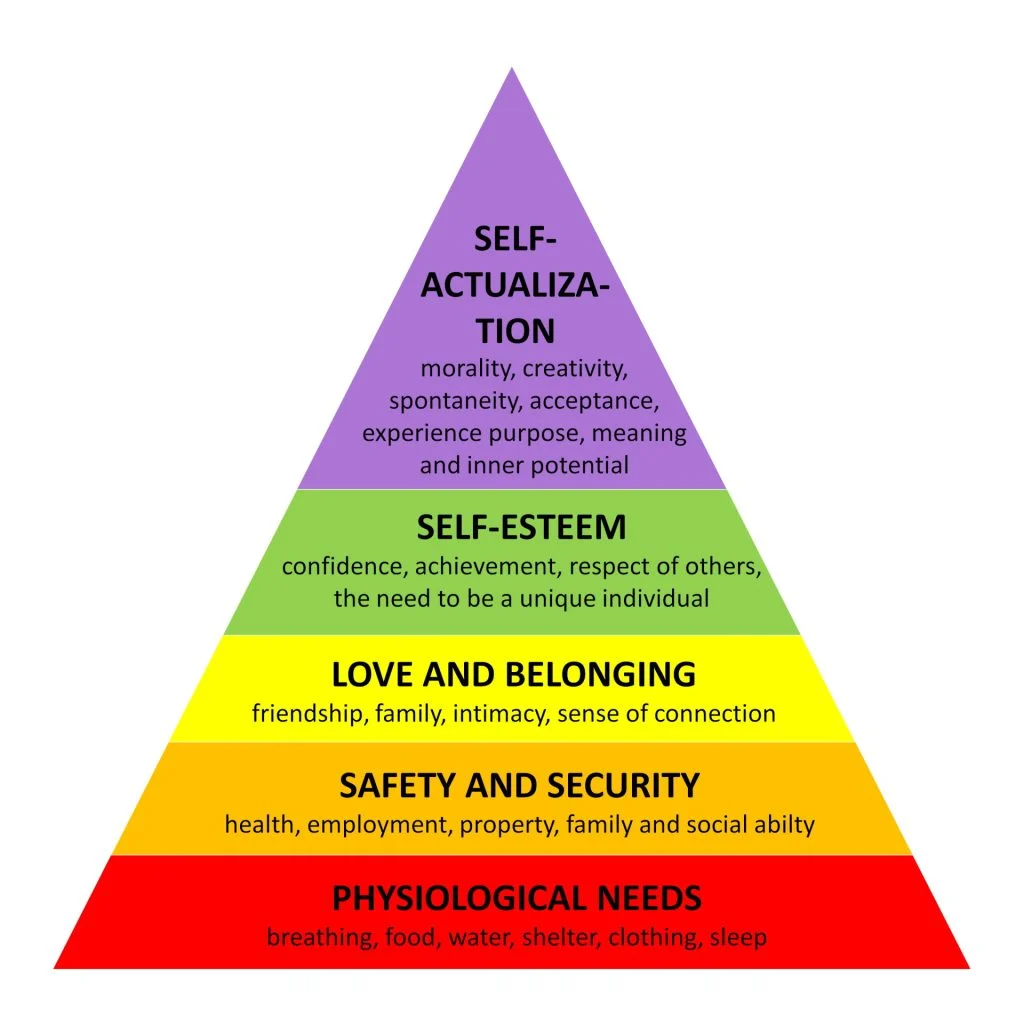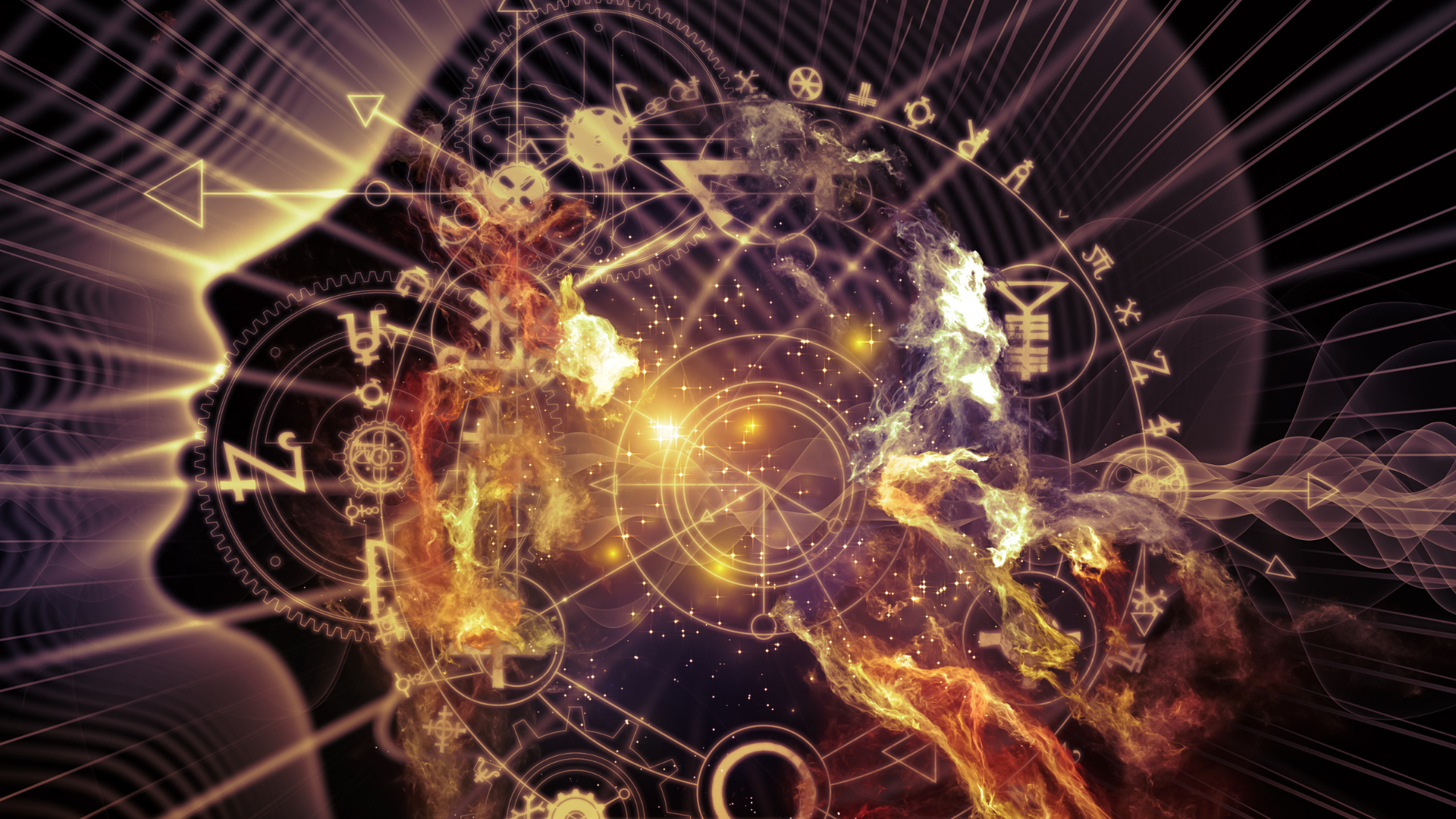Rethinking 'Need': How Language Shapes Our Manifestation Success
Apr 15, 2024
While expressing needs often signals a lack, understanding this can profoundly impact our supportive efforts with others and with ourselves.
Let’s explore how recognizing our needs can unlock a transformative journey through the Universal Principles,.
Traditionally the expression of needs are a positive articulation in communication and connection. In therapy we can have space to learn about our deepest desires, our unmet needs, the reality of what we are missing and longing to have. As a supportive professional many jump to find empathy for the individual that is expressing and discovering these needs. We do not often highlight how these needs are a deficiency or absence. Instead we focus on healing and self-discovery, encouragement of this expression and acknowledgement of needs.
A need is a psychological term that refers to an inherent psychological or physiological requirement essential for well-being and survival of an individual.
Consider that. Needs drive human behaviour, motivate people to act in ways to achieve fulfillment or address where they are lacking. Psychological needs specifically relate to emotional and mental aspects of well-being, critical for personal growth, health and happiness.
There are a few theories about needs in psychology.
There are basic needs. Think Maslow’s Hierarchy of needs that outlines various categories in a triangular structure of levels starting on most basic needs like food and shelter, up safety needs, love and belonging needs, esteem needs and self-actualization at the top. Maslow suggests higher needs can only be pursued if all other needs are met.

There is the Self-Determination Theory (SDT): Developed by Edward Deci and Richard Ryan, this theory focuses on three innate psychological needs: autonomy (the need to feel in control of one's own behaviour and goals), competence (the need to gain mastery and excel), and relatedness (the need to feel a sense of belonging and attachment to others).
SDT goes into the purpose of fulfilling these needs as an essential part of psychological health and well-being, intrinsic motivation, and self-regulation.
One of my favourites is the Attachment Theory. In this theory, which was developed earlier by John Bowlby, the importance of forming secure attachments during infancy and childhood is highlighted. The need for security and safety provided by a primary caregiver is seen as foundational for healthy psychological development and influences patterns of behaviour in adult relationships. That’s not to say attachment cannot change. It is first formed in early childhood, transformed or solidified in youth and as young adults becomes an attachment style with needs that are connected to each style in order to feel secure with our partners and relationships.

From all these theory examples there is an Understanding that addressing needs is a fundamental aspect of various approaches, as unmet or conflicted needs can lead to psychological distress and disorders.
When we are supporting others professionally it is important that we consider and recognize what their needs may be, rather than what our own are. Within therapy we often support people in discovering and acknowledging their needs, understand how they affect their behavior and emotions, and find constructive ways to fulfill them. Part of the evaluation of a need for a client may also be setting up what their goals are.
If a client is focused on their needs, and more specifically on their unmet needs they may be struggling with mental health including anxiety, depression, relationships, physical illness, sleep disorders, autoimmune issues and more.
Sometimes when a client begins to learn what their unmet needs are they may be acknowledging these for the very first time. Part of this is also looking at what is preventing these needs from being met. We can support our clients through that step with specific open ended questions, journaling, writing exercises, Cognitive Behavioural Therapy, and psychodynamic therapy where we process earlier experiences that influence their current unmet needs and behaviours. This is the Law of Cause and Effect at play. What occurred before now has the unmet need effect.

For a simple example consider perhaps a woman who has the limiting belief that she is too overwhelming in her emotions to be accepted fully. She was always told ‘your too much’ as a child. Therefore, she avoids relaxing, playing, and basically being her genuine, hyper and uplifted self with not only strangers but her own spouse and family. Looking at how that early messaging created this limitation is great, but going even deeper and looking at the pros to maintaining that thought and the cons to maintaining it will provide the answer to if she wants to release that thought process, or hang on to it. If she wants to hang on to it, that’s ok, if must be doing something good, than it’s time to work on having her accept this choice and release the need to be different. If she wants to release that belief that there is something wrong with being more ‘energetic’ than support her in doing so through further questioning and processing - it is just a thought, or is it a fact, how would it be if she never thought it again, how could it serve her to think differently. What else could she think?
Sometimes their current limitations also connect with deeply rooted unmet needs. I had a deeply felt sensation that there was something ‘unloveable’ about me. That i was not deserving of a deep connection with a partner. That I was meant to be alone because I was odd and had way too much trauma in my background. I truly believed I was somehow broken.
I remember being introduced to the concept of kintsugi.
Kintsugi is this amazing art where broken pottery is glued back-together with gold. It really is beautiful art. Yet - it was broken. A perfect analogy where our many parts are connected with beautiful gold, sealing them together into a whole of sums into perfection.

Another way is that the pieces of us which we regard as separate and ugly can be connected into a beautiful story of art. We are not broken, we just need to connect our story into parts because they are what makes us so beautiful. My traumas were only part of my story, not my whole identity. I am not my mistakes any more than I am the mistakes of those who hurt me.
I had to understand this in order to understand that who I was did not depend on where I had been, what I had been through, what I had done or who others projected me to be. I learned that I deserved positive, healthy connections, as much as anyone else did. I learned and accepted that I was not only loveable but was in fact loved. I accepted this about myself in the same way I was able to accept someone who loves me deeply.
I once complained to my partner that we had such a weird background to our relationship we didn’t even have a ‘song’. He told me that our song is Frank Sinatra’s Unforgettable. Even though we spent years without communication when we were in our 30s, he would think of me often, and I him, and that song is ours. I was always loved, even though I thought I couldn’t be. I now love myself as intensely as I love my children, and my partner. That to me is huge from where I have been. The blessings in the law of compensation continue to create my kintsugi, my gold, on a daily, grateful basis.
Anyways, let’s get back to the topic of needs.
We can support our clients to outline their needs through journaling, role-playing, guided imagery, open ended questions. These will help externalize thoughts and reflect on unmet needs to facilitate a deeper understanding in and out of our sessions with them.
Try it at home. Take a pen and paper and look at any felt needs you have had over the past week. Then, break these down. Where do these needs come from? Have you ever had these needs met? Who was there when they were met? How did you feel when they were met? If you have never had them met, why not? What is the feeling you get when you consider these needs being unmet? What would happen if they were met? Who would accept you having these needs met? Or who may not accept you? What would you look like if these needs were met? What would you do? How would you think, feel or act differently?
It’s so important to recognize and express the needs we have, but it is also important to understand that focusing on needs may highlight the lack of, and we need to guide those we work with towards fulfillment, not lack.

We do that through alignment. Aligning with having as opposed to needing. Discussing alignment and personal energetic vibrations with those who are open to it, and if they are not connected directly to the universal principles then we understand this ourselves and discuss the importance of goals as opposed to needs. We can transform a need which is a lack into an expression of what the outcome may look like when that need becomes fulfilled, focusing on transformation progress with examples and exercises.
Sometimes we can use the Law of Polarity with stories about someone who shifted from one polarity to the next - from lack to fulfillment or need to having. This can support the balance of a state of feeling needy into feeling fulfilled. It supports the build of hope that there is possibility in being fulfilled.
A huge one for me was having children. I struggled desperately with needing to have a child. I wanted so much to be a biological mother. At one point I finally accepted that doctors were right, and it simply wasn’t possible. I even moved to a town where I really would not naturally have wanted to raise children. I started to consider adopting an older child. I had already raised a non-biological daughter and knew this was possible. I was able to visualize myself as a parent in this way, I could see the opposite to the need I felt. The more I allowed myself to release the need and accept that not only had I already been a mother, it was possible for me to fit into that role again the better I felt the possibility and the hope. Surprise, my oldest biological daughter is 10. Yes, I said my oldest because seven years later I had another.
When we discuss various ebb and flow of needs it is pretty much like everything else in life where according to the principles of Rhythm there is a time of retreat and reflect and a time for change and movement. These cycles are part of understanding how our needs change over time, how we fulfill various needs and how they continue to shift in order to support our personal alignment and growth.
Energy influences our experiences, especially with the concept of needs and desires. The law of Divine Oneness as discussed in other podcasts is that everything is energy. Our thoughts, emotions, physical matter, our bodies, our communications, even the things that we touch and use to survive on a daily basis, everything is energy. With the law of vibration this goes further into understanding that everything that is energy - which is all things - is vibrating at different frequencies.
Understanding that these frequencies can be influenced by our needs through our emotions and thoughts is part of the importance of understanding our needs. Consider how emotional responses to unmet needs have maybe created energetic patterns in your life. When you feel pessimistic, lacking, focusing on unmet needs what emotions come to mind? Not likely gratitude, joy, authenticity or positive physical feelings. Rather when focused on needs you may feel physically tense, ill, anxious, fearful, depressed, frustrated.

Part of the process of shifting from needing into having involves the awareness of energy states and the underlying needs that are driving that energy. Becoming mindful yourself as to where your at with regards to your own life, your own needs will support you in becoming aware when your clients are ‘stuck’ in needing. Language is important here too.
Do you, or if your looking at your client say things like:
I won’t be happy until…- bargaining for happiness removes the possibility of finding it where we are at.
"I need this to feel complete." - Feeling incomplete or inadequate is not about what we have it’s about what is within us.
"Why can’t I get this?" - This question often expresses frustration and helplessness, satisfaction can be found without this. Instead of why can’t i - I can too.
"If only I had..., everything would be better." - Life doesn’t just magically shift into everything being better, there are always ups and downs, we need to accept problems, and find positives.
"I should be able to do this or have this." - Unrealistic should statements just create shame. We should all over ourselves with these.
"Everyone else has this, why don’t I?" - This statement keeps us in envy and wishing instead of capability and planning.
"This is the only thing that matters to me right now." - a narrow focus results in less balance, inability to find things that are gratitude building.
Are you aware when you say things like above? Do you ‘wish’ for something, or focus on ‘I’ll never have’ things? Do your clients make any of these statements? Awareness as in most things, becomes a key.
Energy cleansing techniques can be used to ground, clear and shift from the place of need to a place of allowing. This is done in a variety of ways, and it depends on where your spiritual beliefs lie. There is no right way. I’m into crystals, sage, nature, meditation, but not everyone likes these routes. Some will find prayer, walks in nature, quiet moments, having something to eat, a salt bath, just shifting their body a way of releasing negative energy and shifting into allowing positive.
We can encourage our clients to find something that feels right to them to shift into a space where they allow positive thoughts and energy by supporting them to become more aware when they are not being positive. Again, awareness is the key. I have done visualizations during sessions with some clients to build that awareness. I am hoping to upload a couple of these in May to my website so join the mailing list and I’ll post it there.
We need to change energy in order to change where we are and where we are going. THe Law of Attraction is ALL about this - attract positive by being positive.
A client comes to mind who was constantly focused on the trauma they had endured, and the lack of finances, family and connections they had. They didn’t believe there was anything else possible, and just kept ‘wanting’. Yet every other week they showed up for our sessions. I was even feeling frustrated with the lack of shift, until I realized that they were supporting their lack out of a deep rooted belief that they were just not deserving of positive, they had to forgive themselves for past mistakes, find compassion for themselves. Instead of trying to find positive I allowed them space to simply connect to that past version of themself, forgive them, and build on a different perception of where they had been.
This allowed them to accept who they were currently, but also to find hope that they could change. They were no more the same today as yesterday than they would be tomorrow to today. By learning to love and accept themselves changes began happening and they attracted not only a partner but when they fired me had discovered they were also going to be having a baby.

Every morning I do a daily check in with my own energy, and take a few moments to relax, do a visualization of my energy cleansing and clearing, and focus on being present, with the intention of a day of gratitude and positive energy. If I miss a day my mood is noticeably lower, and it’s something that I now know is so important.
So to summarize needing vs having.
When we need something we are remaining without it. This is because to need is to want. When we want something we do not have it. We are in lack of. We are frustrated, hopeless.
When we are in lack we just keep wanting things to be different. We want to have ‘it’. We want to get whatever we do not have. We keep wanting it, needing it and as a result it continues to be missed. MIssing something, longing for something is sadness and frustration.
If we become aware of that sense of longing it connects to desire. Desire is not negative, or ‘bad’. In fact it can be the opposite, if we take away the lack of need, desire can shift into passion. Desire can become a passion fuelled goal.
A goal builds on motivation. Motivation for change, motivation for reaching our goal. Motivation can shift the energy of lack which is negative, into hope, which is a positive frequency. When we need we are in lack and when we are setting goals and motivated we are in possibility. We have hope.
Hoping that things can change, that things are possibility further motivates our ability to set goals into action. When we feel our hope we create a sense of worthiness. The possibility and hope creates the space for acceptance of our ability, or worth in reaching a goal, our authenticity and genuineness.
This acceptance of self results in a sense of purpose. From need to desire to goals to hope to motivation to acceptance and purpose we amplify our positive energy, our positive emotional state, and in turn, our positive behaviours and external energy including what we attract and experience. This builds on our gratitude, and our authentic self.
Then, we create further goals, further self-acceptance, and deeper understanding that not only have we created possibility and manifested our goals, we can create and achieve much more. Trust in who we are, and trust in where we can go comes from the law of perpetual transformation of energy. What was once lack and need has become creation and reality.

SUBSCRIBE FOR MORE
By joining you will get access to new posts and events.
We hate SPAM. We will never sell your information, for any reason.


